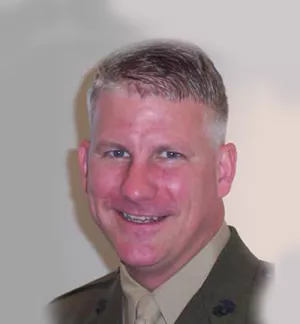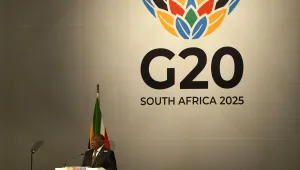Cambridge, Mass.
THE American public needs to be prepared for what is shaping up to be a clash of colossal proportions between the West and Iran.
President Franklin D. Roosevelt masterfully prepared Americans before the United States entered World War II by initiating a peacetime draft under the Selective Training and Service Act of 1940.
Now, President Bush and Congress should reinstitute selective service under a lottery without any deferments.
This single action will send a strong message to three constituencies in the crisis over Iran's nuclear intentions — Iran, outside powers like China and Russia and Americans at home — and perhaps lead to a peaceful resolution.
Iran's leaders and public will see that the United States is serious about ensuring that they never possess a nuclear weapon. The Chinese and Russian governments will see that their diplomatic influence should be exercised sooner rather than later and stop hanging back. But most important, America's elites and ordinary citizens alike will know that they may be called upon for wartime service and sacrifice.
President Bush has the perfect credentials overseas to execute this move, and little political capital at home to lose at this stage. Polls confirm that a wide majority of people in many countries view him and the United States as the major threat to global peace. Why let them down on this count? Go with the flow.
President Ronald Reagan was the past master of using this strategy during the cold war. Reagan capitalized on his image as the madman at the helm to keep the Russians off balance, using the signs of war to dissuade our foes and avert actual war. President Bush should take a page from Reagan's playbook.
Iran's leaders are highly sensitive to Iranian public attitudes about the nuclear program. That, at least, is the impression one gets from a speech given behind closed doors to Iran's Supreme Cultural Revolution Council by Hassan Rowhani, the former chief nuclear negotiator with the Europeans. In the text of his remarks published last year by an Iranian policy journal, Mr. Rowhani said the nuclear issue had already created too many headlines, and that "whatever we do, we must have the support of the public."
Engaging Iranian public opinion at a deeper level can only enhance the prospects for a peaceful settlement. By signaling to Iranians that the cost of a clandestine nuclear program will be expensive — in blood, treasure, time and standing — reinstitution of selective national service in the United States will alter the calculus of the crisis with Iran.
As it now stands, we have an American administration that is determined to deny the Iranians nuclear weapons but needs time to effect regime change in Tehran. Iran's hard-line leadership, meanwhile, needs time to solve the technological challenge of enriching enough uranium to make an atomic bomb.
Unfortunately, with time in short supply for both sides, the clash of national wills is escalating, and a military conflict seems more likely.
President Bush should therefore consult with Congress about reinstituting selective national service by lottery for all young males and females. After 9/11, President Bush missed an opportunity to ask America's citizenry to make sacrifices in the form of military service, homeland defense and conservation that many would have accepted. Instead, he asked people to continue shopping to prop up the flagging economy.
We should not fumble the opportunity now to begin selective service again, while the Iranians and others are watching. It may be our last best chance to avoid war with Iran.
Paul Kane, a Marine who served in Iraq and a fellow at the Kennedy School of Government, is writing a book about national service and sacrifice.
Kane, Paul. “A Peaceful Call to Arms.” The New York Times, April 20, 2006



